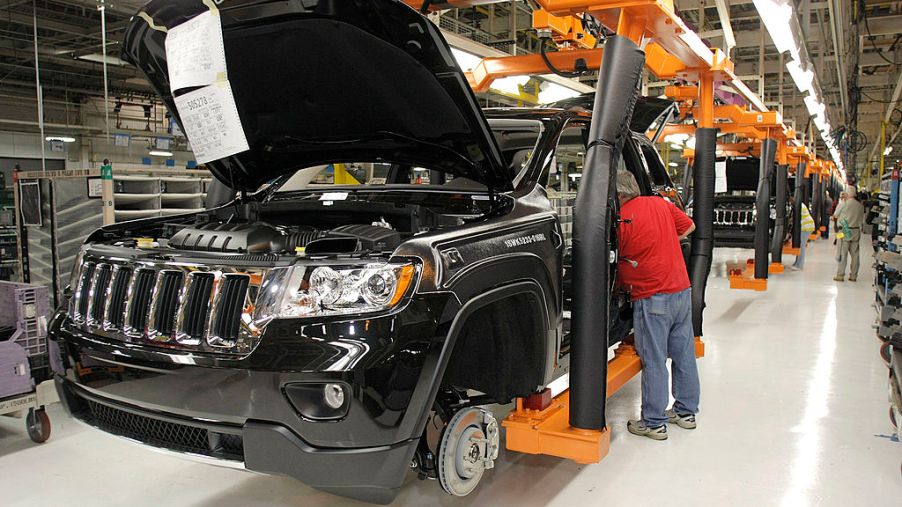
Are Auto Companies Putting Too Much Stake in SUVs?
No other vehicle model has come to represent the American dream and suburban living more than the SUV. Despite higher gas prices, Americans love the larger space, sporty look, and power that an SUV provides.
Manufacturers have responded by building the vehicles in record numbers, but could this be a mistake? In an effort to match America’s demands, the automaker may be making a huge mistake that could have big consequences for the rest of our economy.
America has a surplus of SUVs
Big automakers across the country noticed that Americans love SUVs. In response, these companies ramped up production of the vehicles, favoring SUVs to the production of sedans and other models. According to The Street, Ford and General Motors are producing around 8 million SUV models a year.
Sales of SUVs haven’t kept up with this increased rate of production. Our market is now flooded with SUVs from years of strong sales. Plenty of drivers continue to buy the vehicles, but we also a huge supply of used SUVs on the market right now. Prices for used SUVs are dropping fast and that encourages consumers to purchase used over new vehicles.
Another contributing factor is that banks have tightened the standards for auto loans. The median credit score for a new loan used to be 683 and now it’s 710. Higher credit standards mean that many consumers will be pushed out of the new vehicle market, and will be forced to purchase used. If they can’t get a loan on a new SUV, they’ll have no choice but to lower their standards and purchase used.
Since sales of new SUVs are down and production of the vehicles is up, we have a problem on our hands. Manufacturers are facing an inventory buildup. And that could be a problem for our economy.
Too many will drain the economy
Manufacturers responded to record sales numbers by building more SUVs. But now, we have SUVs that are just sitting on the lot, not being sold. That means the auto industry is losing money across the board.
There are over three million workers employed by the auto industry. According to Statista, one million work in manufacturing, and two million work in vehicle and parts sales. If the vehicles aren’t selling, the loss of income will be felt by every one of those employees in the industry. And with a number that large, it can easily trickle down to affect the rest of our economy.
We’ve already seen the auto industry start to respond to the problem. In May, Ford announced plans to cut 7,000 jobs from its manufacturing facilities in Dearborn, Michigan. There’s no doubt the loss of those jobs will be a hit to the economy in Dearborn, and it’s just a matter of time until it trickles across the rest of the country.
Now is the time to buy an SUV
Manufacturers will have to adapt in response to the overproduction of SUVs before it’s too late. It’s likely that automakers will lower the number of SUVs that are being built in the future, but for now, these companies need to figure out a way to deal with the oversupply before too much damage is done.
As Bloomberg reports, automakers may have already found a way to do that. Automakers are increasing the number of rebates they offer to encourage consumers to buy. This is good news for the consumer but cuts into profits for the manufacturer. Let’s hope it doesn’t do so much damage that the rest of our economy suffers.
For now, consumers who wish to purchase a new SUV are in a great position. There’s never been a better time to buy. The overproduction means manufacturers are eager to get the vehicles out the door and are prepared to do whatever it takes. That means lower prices, increased rebates, and a better overall deal for consumers. If you’ve been thinking about purchasing a new SUV, now is the time.


